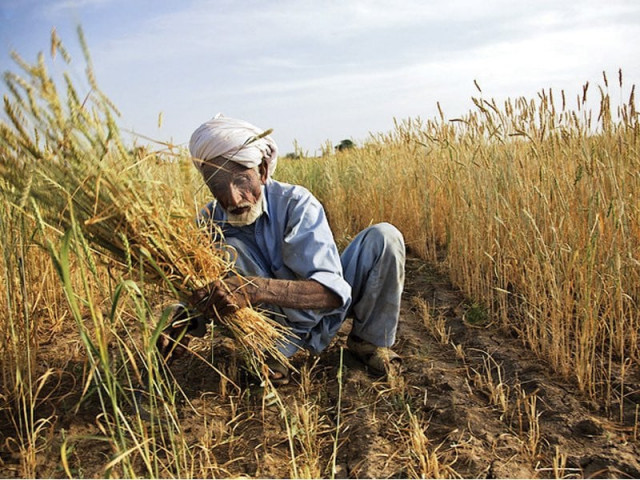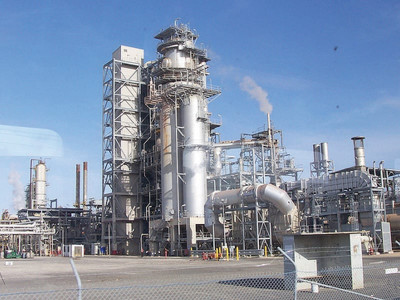
Agricultural experts and farmer representatives have urged both federal and provincial governments to implement immediate and concrete measures to rescue Pakistan's struggling farming sector.
Among the proposed measures are the establishment of an Agriculture Commodities Price Commission (ACPC) to guarantee farmers a minimum 25% return on investment, the formation of an Agriculture Export Authority (AEA) to stabilise local prices and boost exports, abolishment of the 18% GST on seed cotton, removal of GST on tractors and implements, and the setting of a uniform electricity tariff of Rs10 per unit for irrigation tube-wells. Representatives said recent data reveals the sector is in freefall, while provincial budget allocations have been widely condemned as grossly inadequate.
The scale of the crisis is staggering. Pakistan's agricultural sector contracted by 5.84% in just one year. Major crop production shrank by over 13%, with wheat production dropping 8.91% to 28.98 million tonnes in 2025. Farmers have endured massive cumulative losses of Rs2,200 billion on wheat alone between May 2024 and May 2025.
Cotton production fell to 5.55 million bales — 50% below target and 34% lower than last year — forcing a projected import bill of $4.45 billion, a 178% increase that severely strains foreign reserves. Maize production declined by 15.4%, and sugarcane fell to 84.24 million tonnes from 87.64 million tonnes.
The collapse extends beyond production. Agricultural export performance also deteriorated alarmingly in 2024-25. Maize exports dropped 86% to just $58.9 million. Rice exports fell 15% to $3.3 billion. Onion exports dropped 48%, mangoes by 16%, and potatoes by nearly 4%. The downturn reflects deeper structural issues, including declining productivity and a critical lack of support for export infrastructure, quality control, and supply chainsthreatening Pakistan's trade balance and economic stability.
In this context, the Punjab government's 2025-26 budget allocation of Rs129.8 billion for agriculture — only Rs12 billion (10.75%) more than last year's Rs117.2 billion — has been met with disbelief and anger. Farmer leaders argue this token increment fails to address a crisis involving multi-trillion-rupee losses.
"Allocating only Rs129.8 billion for agriculture in the face of Rs2,200 billion in wheat losses alone is not just inadequate — it's an insult to the farming community," said Khalid Khokhar, President of the Pakistan Kissan Ittehad. "It demonstrates a complete failure to grasp the existential threat facing our food security and rural economy. This budget offers Band-Aids for bullet wounds."
Adding to the frustration is the Punjab government's proposal to tax agricultural income by aligning tax slabs with those for established businesses. Critics see this move as dangerously disconnected from the realities on the ground. Small and medium-scale farmers, already reeling from plummeting commodity prices, crop failures, climate stress, and water shortages, view the measure as an unbearable additional burden.
"How can they even think of taxing us now?" asked Muhammad Aslam, a wheat and cotton grower from Bahawalpur. "Last year's wheat crop drowned me in debt, cotton failed, and now maize prices have crashed. I sold my wife's jewellery just to buy seeds and urea for the next season."
Agricultural economist Dr Fahd Ali described the proposal to tax agricultural income amid this unprecedented financial haemorrhage in the farming sector as "economically illiterate and socially risky." He said it ignores the inherent volatility and risk in agriculture compared to corporate sectors. "This risks accelerating disinvestment, deepening rural poverty, and triggering social unrest," he warned.
Signs of severe financial strain among farmers are already apparent. According to Khokhar, sharp declines in the use of essential fertilisers like urea and DAP, coupled with plummeting tractor sales, indicate that farmers simply cannot afford the critical inputs needed for the current Kharif season.
"This directly threatens yields, especially for high-risk crops like cotton, and raises fears of severely reduced wheat sowing in the upcoming Rabi season, potentially pushing the country towards a food security emergency. The situation fuels warnings of mass rural migration and widespread protests," he added.
Agriculture experts and stakeholders overwhelmingly believe that the gap between the scale of the crisis and the government's policy response is astounding. Farmers, they warn, are being pushed to the brink. Ignoring their plight and the foundational role of agriculture is a recipe for national instability.
The implementation of the recommended measures — beginning with immediate tax relief on key inputs and the establishment of price and export regulatory bodies — is now seen as critical to averting a full-blown agricultural and social catastrophe.

























COMMENTS
Comments are moderated and generally will be posted if they are on-topic and not abusive.
For more information, please see our Comments FAQ